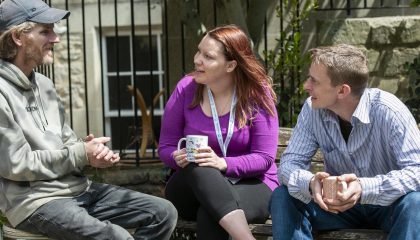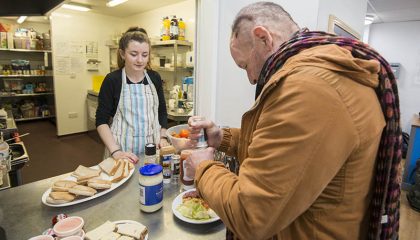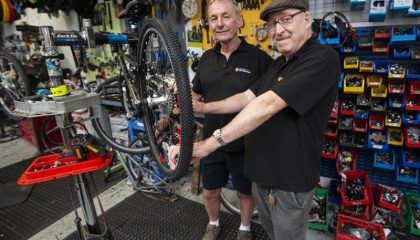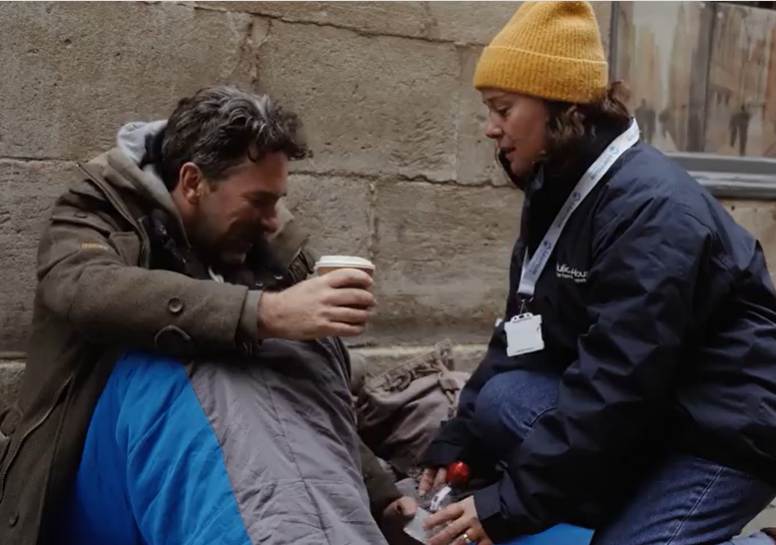 Julian House is currently supporting over 300 women in various projects, who are affected by issues including, but not limited to : homelessness, mental health struggles, domestic abuse and substance recovery.
Julian House is currently supporting over 300 women in various projects, who are affected by issues including, but not limited to : homelessness, mental health struggles, domestic abuse and substance recovery.
This interview is with Izzy, one of our Women’s Mental Health & Wellbeing Co-ordinators, explaining the amazing work she does at Julian House.
Can you tell us more about the purpose and need for your role as Women’s Mental Health & Wellbeing Co-ordinator?
The purpose of my role is to help alleviate barriers the women within Julian House may face to progression and engagement with both external and internal services. One of the primary barriers my clients face is anxiety, so I have a 6 week anxiety management programme which is available to female clients within Julian House.
Anxiety can also be exacerbated by issues such as social isolation and sleep deprivation – as such, I also offer things along the lines of sleep hygiene, relaxation sessions and ad-hoc emotional support. I have also recently taken on a befriending volunteer with lived experience. Alongside our activities and engagement co-ordinator and our health officer, we are also running a weekly coffee morning which is open to all women within Julian House.
Whilst these are areas that are also covered by other third sector organisations and in some cases statutory services, many of the women I work with have been stigmatised and have felt ‘let down’ by external practitioners and services. I do my best to position myself outside of that – I dress casually for the meetings I have with the women and put a lot of emphasis on us getting to know each other rather than going straight into sessions and throwing interventions at them.
Additionally, being able to deliver these interventions in house eliminates a lot of barriers – many of the women struggle to get to external appointments due to anxiety, difficulty navigating to new places or the concerns surrounding meeting someone new. Before this role I worked as a support worker in our single supported housing service, so I was already known to a lot of the clients which as gone a great distance with regards to my clients feeling comfortable with me.
What is a typical day like?

No two days are the same – as I work across services within BANES I tend to move around the city quite a lot. In the morning I may be at one project delivering a module of my 6 week anxiety management programme, then I may have an external meeting, then I may have to hot foot it across town to support a woman in the midst of a crisis.
My day and my interventions are as varied as the women I work with. I tailor my interventions to my clients as much as possible, as when you’re working with people – and particularly people with complex needs – there is no ‘one size fits all’, and this is often reflected in the sometimes frenetic nature of my working day!
How many women do you support at any one time?
The maximum number of women I can support at any one time are 7 on a 1:1 basis. Due to the nature of my client group, there is a lot of flux within the numbers I will be supporting at any one time.
In time I am hoping to expand this number with the introduction of group work, but at the time of writing due to the complexity and the level of trauma my clients have experienced my current caseload is predominantly interested in 1:1 interventions.
What are the biggest challenges the women you are supporting facing?
Many of the women I work with are intrenched within cycles of drug addiction or domestic abuse. The most important part I’ve found regarding working with these women is being non-judgemental – often these women have spent their whole lives being told their actions are wrong, they are wrong for staying with an abusive partner, and that society generally thinks of the essence of their experience and decisions as ‘wrong’. This perpetuates the cycle and goes no distance into empowering women to try and find a path that is healthier and happier for them as they don’t feel that they deserve it.
This illustrates the importance of sitting back and listening, rather than just rushing forward to a solution when you’re in a session with a client – for example, a woman who has experienced domestic abuse has likely been asked time and time again by society and their support network “why don’t you leave?”, which completely invalidates the complexity of these situations and puts the onus of the victim. Often, the difficulty of leaving or seeking help is low self-worth and confidence brought on by a lifetime of abuse and isolation. This is why connection with community is so important, alongside feeling that they’re actually being heard rather than told what they should do – which in many cases, they already know.
I have also recently trained in delivering DBT skills, wherein there are modules and worksheets centring around reframing, self-worth, self-esteem, identification of healthy relationships and how to foster these, and effective interpersonal communication.
At the time of writing I think one of my most frequently used phrases during sessions is “No is a full sentence“!
Can you give us an example of someone who are currently being/ have been helped?

One of the women I’ve worked with previously had a long standing history with addiction. She was within Julian House for 8 years and went through several relapses. Most of our sessions together comprised of getting a coffee and going for a walk, although we also worked on anxiety management and reframing thoughts when she had the energy to engage with more in-depth materials. At the time of writing she has now been in a successful council tenancy for over a year.
I met up with her a little while ago and she is now interested in becoming part of my befriending service as she has a strong drive to give back and help people who have been through similar things she has – she said to me that without Julian House she doesn’t think she would still be alive. She’s very grateful to us but in reality all of the effort and heavy lifting came from her! We guided and supported but she’s the one who put in all the work.
What is your biggest challenge as a Women’s Mental Health & Wellbeing Co-ordinator?
Without a shadow of a doubt my biggest challenge is engagement. I work with women who live within constantly fluctuating social and emotional landscapes, and as such it would be somewhat unrealistic for me to expect them to be able to keep to the same time slot on the same day every week – bearing in mind they also have appointments with key workers, the job centre and in a lot of cases DHI.
The best way to work alongside this is with both patience and flexibility as things can change from hour to hour with this client group through no fault of their own or no failings on my part – on that note, the ability to not take things personally if someone cancels an appointment or decides it is not right for them at this time is fundamental within this role!
Can you tell us something that the public don’t know / understand?
In my experience the public often fail to see the person behind the substance misuse issues or behind the label of ‘domestic violence victim’ – which is honestly terminology I’m not comfortable with in the first place – but that’s a different story!
I think that people who haven’t been in proximity to women who have experienced these issues have a very fixed idea in their head of how these women will present and what characteristics they will have. Often people fail to see the individual behind the labels and attribute all of the associated negative connotations to their personality.
For instance, I think a lot of people hear ‘victim’ or ‘addict’ and think this is synonymous with weakness – when in reality, the women I’m working with are without question the strongest people I know.
How do you stay motivated and what sort of support do you get?
 I work closely with the homeless single supported housing team – they are all brilliant and supportive and we both commiserate and celebrate together, so having an excellent team around me helps with the day to day motivation.
I work closely with the homeless single supported housing team – they are all brilliant and supportive and we both commiserate and celebrate together, so having an excellent team around me helps with the day to day motivation.
What motivates me on a more long-term basis is seeing people succeed. Seeing people happier, healthier, and more equipped to move on from services or create a healthier environment around themselves brings me joy and energises me.
With your generous help, we can continue with our support.
If you or someone you know is in need of help or advice, please email: renew@julianhouse.org.uk or contact Southside: 01225 331 243






